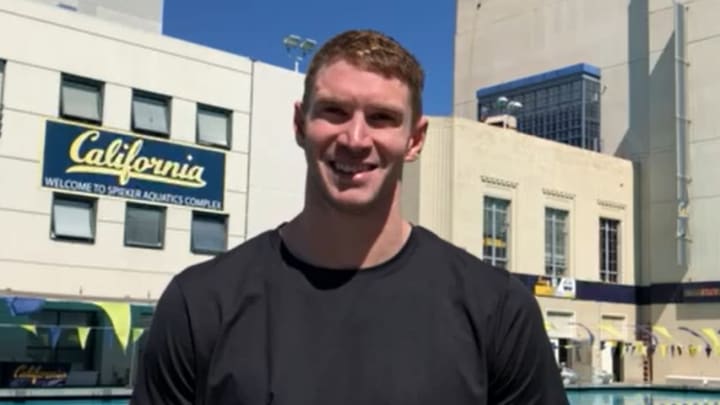Swimmer Ryan Murphy Is Different Than He Was in 2016 Olympics

Naivete seemed to work in Ryan Murphy’s favor in 2016, but he’s hoping familiarity with the Olympic swimming procedure outweighs the increased pressure eight years later.
Former Cal swimming star Murphy was a 21-year-old who had just completed his junior year at Cal when he competed in the Olympic for the first time 2016. Now he is an outspoken 29-year-old with a wealth of experience who knows the pressure he faces as he prepares for his third Olympic Games. The situation is different, but Murphy insists the goals are the same.
“In 2016, I was just wide-eyed,” he said last month at Cal. “I just went into the Olympics, and I really had no idea what to expect. I think the naivete was pretty good for me. I was just able to follow the leaders we had on the team and just kind of go in there with no pressure. It allowed me to just focus in racing.”
That approach served Murphy well, as he captured three gold medals in the 2016 Summer Games in Rio de Janeiro – in the 100-meter and 200-meter backstroke events as well as the 4x100 medley relay.
---(Click here for a story on Ryan Murphy’s concern about doping in swimming)---
Five years later, in the 2020 Tokyo Olympics, which were held in 2021, Murphy could not quite match his 2016 success – getting a gold medal in the medley relay, a silver medal in the 200m backstroke and a bronze in the 100m backstroke.
Now he heads to Paris, again competing in his two signature events after placing first in both the 100 and 200 backstroke events at the Olympic trials. Familiarity accompanies Murphy this time, but so does the pressure of expectations.
“Now I understand how the Olympics work a little bit more,” he said. “I understand the nuances of how everything is going to be organized. But I also understand the consequences of performance, and I think that’s where a lot of the pressure comes. I think I’m good at dealing with pressure, but definitely understand the magnitude of the pressure now.”
You have to love the phrase “the consequences of performance,” an athlete’s euphemism for the fear of failure or the weight of expectations or the magnitude of the event or any number of other mental demons elite veteran swimmers must conquer.
Murphy’s understands himself and his sport better now, creating a more methodical and structured approach.
“As a person I’m a lot more confident,” he said. “I think I have a greater understanding of what I’m doing, so I understand how I’ve gotten the performances I’ve gotten in the past, and I think it’s repeatable. So I have a greater understanding of how I want to approach the races and maximize my potential.”
However, the goal has not changed.
“I’m just as competitive as I was in 2016,” Murphy said. “I want to win every time I swim, whether it’s in a practice or at a meet. So, no, the goals are really similar to what they were in 2016.”
The goal, of course, is to pick up three more gold medals. That would give him seven gold medals, still well behind Michael Phelps’ record of 23 swimming golds, but not far behind Mark Spitz, who is second with nine gold medals, or former Cal swimmer Matt Biondi, who is third with eight.
Murphy’s pursuit of more gold begins on Sunday (July 28) when heats for the 100-meter backstroke get underway.
Follow Cal Sports Report on Twitter: @jakecurtis53
Find Cal Sports Report on Facebook by going to https://www.facebook.com/si.calsportsreport
